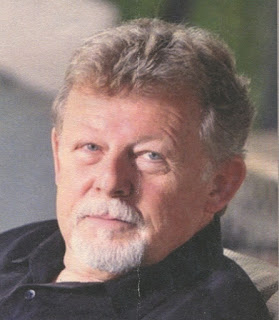"Joseph and Mary" (envelope art by Steve Crain)
“Expecting a Messiah was infused into the Jews,” Pastor Burrows said.
Pastor Raymond D. Burrows talked about Joseph, Jesus’ “earthly father,” in the Tuesday Bible Study held at 10 a.m., Dec. 08, 2020, at Faith Temple Church, Taylors, SC.
He read about a serpent in Genesis 3:14-15 (KJV).
“In some way, Satan entered into the body of the serpent to tempt Adam and Eve,” Evangelist Don Stewart says. “The serpent was the instrument the Devil used to do his bidding.”
God cursed the serpent:
“Because thou hast done this, thou art cursed above all cattle, and above every beast of the field; upon thy belly shalt thou go, and dust shalt thou eat all the days of thy life.”
God then said:
“And I will put enmity [hostility] between thee and the woman, and between thy seed and her seed; it shall bruise thy head, and thou shalt bruise his heel.”
“Genesis 3:15 is commonly referred to as the first mention of the good news of salvation in the Bible,” sources say. The bruising of the heel of the seed of the woman is taken to mean the crucifixion of Christ.
Louis Berkhof says, “The death of Christ, who is in a preeminent sense the seed of the woman, will mean the defeat of Satan.”
The Amplified Bible indicates that “the woman’s seed” is more than mankind in general; it is an individual representing all mankind.”
The Gen. 3:15 prophecy means that Satan hurt Christ, but Christ dealt a death blow to Satan (by “crushing his head”). The heel-bite is set in contrast to the head-crush, someone said.
From Creation until the coming of the Messiah was “about 4,000 years,” Pastor Burrows said, adding that Christ filled the roles of prophet, priest, and king and that “no human being could fill those three roles.”
Pastor Burrows said he believes Joseph had a solid foundation in the Old Testament and knew about the Gen. 3:15 prophecy.
We read about Joseph’s response to Mary’s pregnancy in Matthew 1:18-25 KJV:
“Now the birth of Jesus Christ was on this wise: When as his mother Mary was espoused to Joseph, before they came together, she was found with child of the Holy Ghost.
19 “Then Joseph her husband, being a just man, and not willing to make her a public example, was minded to put her away privily.”
Note: Mary became pregnant before she and Joseph experienced marital intimacy. Joseph thought about ending their relationship. The New International Version translates that passage as: “Because Joseph her husband was faithful to the law, and yet did not want to expose her to public disgrace, he had in mind to divorce her quietly.
Let’s continue reading at verse 20:
20 “But while he thought on these things, behold, the angel of the Lord appeared unto him in a dream, saying, Joseph, thou son of David, fear not to take unto thee Mary thy wife: for that which is conceived in her is of the Holy Ghost.
21 “And she shall bring forth a son, and thou shalt call his name Jesus: for he shall save his people from their sins.
22 “Now all this was done, that it might be fulfilled which was spoken of the Lord by the prophet, saying,
23 “Behold, a virgin shall be with child, and shall bring forth a son, and they shall call his name Emmanuel, which being interpreted is, God with us.
24 “Then Joseph being raised from sleep did as the angel of the Lord had bidden him, and took unto him his wife:
25 “And knew her not till she had brought forth her firstborn son: and he called his name Jesus.”
Joseph’s knowledge of Old Testament prophecies perhaps helped cause him to accept his role as Mary’s husband. When “the angel of the Lord appeared unto him in a dream,” that convinced him. (We read in Deut. 19:15, “ … at the mouth of two witnesses … shall the matter be established.” Prophecy was a witness, and an angel was a witness.)
“God uses his word to stabilize his people,” Pastor Burrows said. “Whoever stands on his word will not be shaken because his word will not be shaken. One of the effects of prayer is enabling us to accept the Father’s will. Was Joseph simply accepting the choices God made for his life? Joseph was a noble guy. He was Mary’s protector, her provider. He took the man’s role. He stepped up to the task.”
Ms. Beatrice Whitman, an attendee at the Tuesday study group, said, “I think Joseph must have really loved Mary.”
“Joseph had to be a special person, being Jesus’ earthly father,” Ms. Linda Trammell said.



